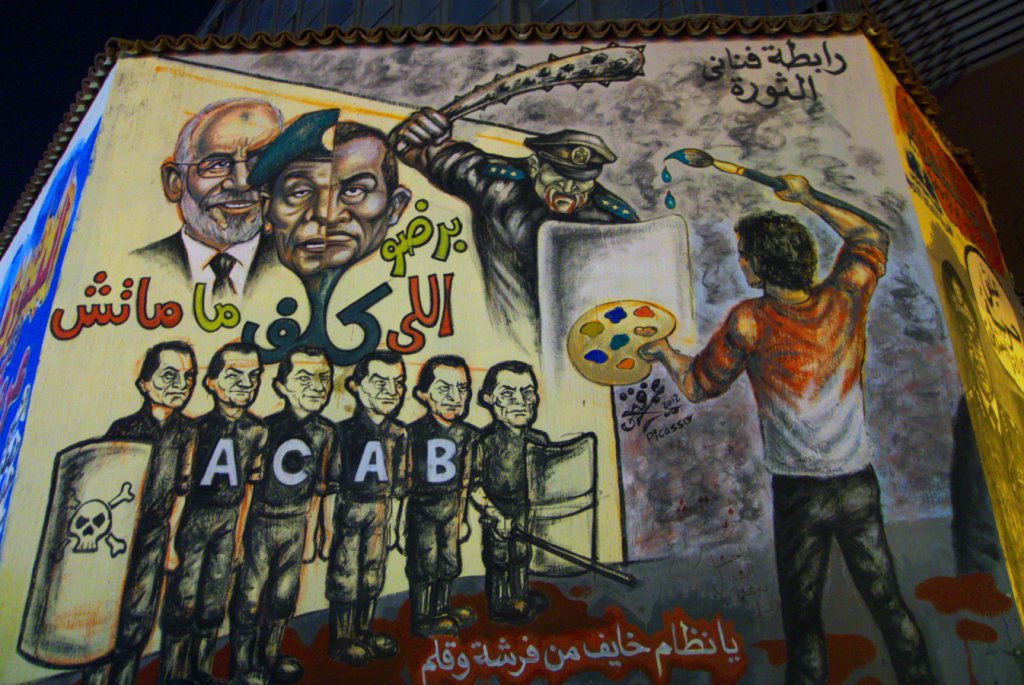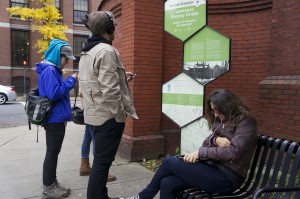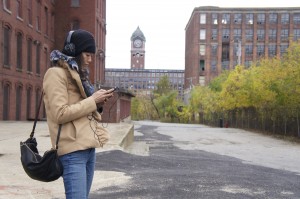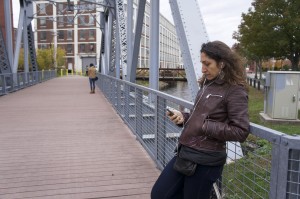Dear Friends,
Harvard’s DocShop and MIT OpenDocLab Fellow Lara Baladi are happy to invite you to Notes from El Saniyya on Thursday December 11th from 3-9 pm, with the main event and artist’s talk from 6:30-8:00, at the Harvard Graduate School of Design.
Based on a growing archive that artist Lara Baladi has been gathering since the 2011 Egyptian Revolution, Notes from El Saniyya is an invitation to participate in the making of a ‘transmedia painting’ and is part of the interactive history-telling project Baladi is developing at OpenDocLab, called Vox Populi, Archiving a Revolution in the Digital Age.
Tahrir Square was the most digitally documented and disseminated event in modern history. It is the archetype of a global phenomenon that marks the beginning of the 21st century. Baladi’s Vox Populi will act as a tribute to this symbolic event and represent its impact on and resonance with the uprisings and socio-political movements that followed, and continue to do so worldwide.
Notes from El Saniyya is the first in a series that DocShop and artist Lara Baladi will present during the 2014-15 academic year. Experimental and conversational, the event will offer participants the chance to interact with archival media, give feedback, and contribute ideas which will help inform later events in the series. This open lab experience mixing art, history, and digital media will encourage participants to immerse themselves in the creative process of making socially-engaged art.
Notes from El Saniyya will take place on Thursday December 11th, from 3-9 pm in Gund 522 (The HILT room) at the Harvard Graduate School of Design, 48 Quincy St, Cambridge, MA 02138.
Space for this event is limited, please RSVP here: http://goo.gl/forms/IzopK1UwWL
Email Joe Steele jsteele@gsd.harvard.edu with any questions.
Warmly,
DocShop and Lara Baladi
DocShop is an interactive documentary workshop that seeks to engage filmmakers, artists, and storytellers with new audiences. Dedicated to exploring the possibilities of embodied media in ever-expanding contexts of participation, DocShop is part of the Digital Problem Solving Initiative (DPSI) at the Berkman Center for Internet and Society and metaLAB at Harvard.
Lara Baladi is an internationally recognized multi-disciplinary Egyptian artist. Baladi applies archives, investigations of myths, and personal narratives to a range of mediums including architectural and video installations. Baladi publishes and exhibits worldwide. Here is a link to her CreativeTime Reports articles. Her works are part of a number of institutional and private collections. She has been a board member of the Arab Image Foundation since its creation in 1997 and in 2014, began to serve on the advisory board of R-Shief, a historical online archive and media system.
During the 2011 Egyptian uprising, Baladi co-founded two media initiatives, Radio Tahrir and Tahrir Cinema, which served as public platforms to build and share an archive on and for the revolution. Today, much of Baladi’s work revolves around and stems from this archive.




 What Was Challenging
What Was Challenging